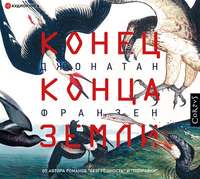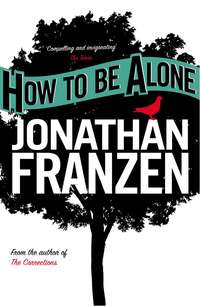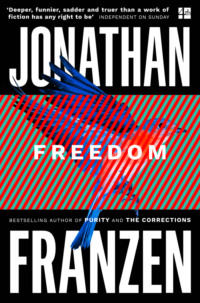
Полная версия
The Kraus Project
Because it’s not to be thought that they were simply deaf to the subject about which they were being addressed. They’re still happy to hear about Heine, even if they know not what it means.7 If the essay merely rejected the living value of his art, it would surely say nothing new to that contemporary sensibility that doesn’t even let itself be fooled by the collusions of the commentariat. It would surely sooner be brought around to begging for a Heine monument than to a reading of his books. And the hate that developed there, where not love but mere intellectual hypocrisy stands watch over the grave, would be greeted with some bitterness, to be sure, but not with any general interest. This text, meanwhile, as far removed from suspicion of being unfair to Heine as from pretension of being fair to him, is not a literary essay. It doesn’t exhaust the problem of Heine, but it does more than this.8 The most ridiculous reproach—that it holds Heine responsible as an individual culprit for his consequences—can’t touch it. The people who pretend to defend him are defending themselves and revealing the true direction of the attack. They should be held responsible for their existence, and the sputum that German intellectuals immediately coughed up is evidence that they feel themselves to be the responsible consequence. There were individuals severely enough punished by their own poetry or too gravely insulted by their own polemics to have needed to respond in detail. The few who were annoyed and the many who didn’t read have confirmed what was written.9 It wasn’t the danger of experiencing a desecration of Heine, but surely the fear of hearing the most hostile thing that can be said to this age of talents, that prevented the shout from having a stronger echo. It wasn’t an evaluation of Heinean poesy, but a critique of a form of life in which everything uncreative has once and for all found its place and its brilliantly wretched accommodation, that was essayed here. Not a denunciation of the invention of a pestilence, nor even of its importation, but a description of a spiritual condition on which ornaments fester. This offended the pride of the bacteria carriers. Here language is somehow released from everything it was obligated to outwit, and the power to acquire better content is celebrated. Here this very language declares itself a stranger to the calligraphic fraud that admires the beauty mongers from Paris to Palermo for the verve with which, in art and in the hotel bill, a five-note is made into a niner. This they didn’t understand, or recognized as dangerous enough that they didn’t want to hear it.
But so as not to chastise lack of ability, which is an honest effect of the gifted zeitgeist, more severely than the malice that social possibilities of every age have mobilized against thought, it must be said that a particular suspicion has compelled the author to ask the publisher Albert Langen for the reprint rights to this document. The author’s well-known persecution mania, which has gone so far as to whisper to him that he hasn’t managed to make himself loved in twelve years’ time, led him to believe that the pamphlet was intentionally suppressed.10 He imagined that bugs flushed from Heine’s mattress-grave had sprung into action and settled in precisely on the road they know so well, the one that leads from thinking to commerce. Fear of the press can move mountains and shutter halls; a hint is perhaps not even needed to make a Viennese bookseller tepid in marketing a dangerous pamphlet that generates only paltry profit.11 Especially not one of the ones who are even now still sore with Die Fackel about a civil action that its first printer brought against it. Is it not, then, a most indicative Viennese circumstance that not only will the glances of the strolling city be spared the irritation of my books, but that copies of Die Fackel—one line of which contains more literature than the collective show windows of every downtown bookstore, and on whose least comma more torment and love are expended than on a library of luxury editions by Insel—are compelled to offer themselves amid cigars, lottery tickets, and tabloids to cover the costs of a never-rewarded and never-appreciated labor, while an entire chorus of humor-loving vermin considers the thing lucrative and gloats over the idea of the “double issue.”12 A magazine that avoids like leprosy the most legitimate sponsorship,13 that in its desire to earn its own living makes life harder for itself, and that is book-born like hardly a book in contemporary Germany, has to do without the support of its own industry, which ought to have an obligation to it, and to get a taste, in Austrian exile, of the sort of ignominy that throws the person condemned for a political offense into jail with the pickpockets. The pack of liberals whose cosmic feeling is avarice, and whom you have to beg for the mercy of excusing you as crazy if you fail to make a profit: Does it have any idea how many pleasures it could buy with the money that my work of hate devours before it achieves the form with which a self-glorifier is never satisfied—because only then does it reveal to him the errors that the others don’t notice? But here, in his archive, he takes what he likes and collects what is liked nowhere else. Here nothing can disappoint him. A work that instead of twenty editions didn’t see a second one: here nothing more can happen to it. Its author, whose pleasure it is to reach into the spokes of his own wheel to shut down both himself and the machine when the tiniest point displeases him, will never again lend his assistance to an alien publishing concern.14 He will never again try to win a new audience. For him, Die Fackel is not a platform but a haven. Here the destiny of a work can move him only through the point of its completion, not through its dissemination. What’s being lived here may be resurrected in a book. But it’s recompense enough to be bound to one’s own wheel.15
BETWEEN TWO STRAINS OF LIFE
FINAL WORD [TO “HEINE AND THE CONSEQUENCES”]
To report the insignificant fact that “Heine and the Consequences” is in its third edition in seven years, after having been circulated in Die Fackel as well, is not the motive for this supplement.1 The wish is to append something else, which likewise, in the guise of a correction, allows the correctness of a deeper observation to be recognized for the first time.2 Everything that’s said here, and in every chapter about the loss of life in contemporary life and the linguistic betrayal of German humanity, has a train of thought leading to the brink of this war, thanks to which my truths now also have the quality of self-evidence. An explanation is needed only at the point where, in my desperation to escape the machine, I said that I preferred an already fully dehumanized zone to that beauty-smitten thing that resisted the relentless march of progress with the leftover wreckage of humankind.3 This antithesis, now broken open by the war, was resolved in later aphorisms in favor of precisely the latter life-form, as the one with a yearning for life and for form, which, on account of just such a yearning, and of a self-preservative instinct as well, was obliged to undertake emergency defense against the tyranny of a valueless utility, according to which life is finished products and culture the trappings. The question “in which hell would the artist prefer to fry” gave way to the urgent verdict that humanity preferred not to fry in this hell, as a result of the corrective insight of the artist himself, who now no longer has the right and no longer the possibility of seeking to securely lock away his inner self, but only the duty of seeing which parties of mankind are struggling, like him, for the preservation of this kind of happiness and against the coercions of a philosophy of life that has squeezed all the motivations out of life, so as to save it solely for the profit motive. But the fact that those were the regions from whose character the disturbance came in peaceful times: to succumb to doubt about this would be wartime treason against the nature that is warding off the machine.4 It does it; and it does it, if need be, with the help of the machine itself, like the artist who isn’t above using the industrial methods of his times to preserve himself from them.5 Faced with the imperfection of life, he affirms the substitute for life; faced with half individuals, he affirms the patented system for avoiding personalities entirely. The person who helps himself to the machine is rewarded to the same extent that the people who help the machine are impoverished. Because the latter doesn’t liberate a person but makes him its slave, it brings him not to himself but under artillery fire. However, the kind of thinking that, unlike power, doesn’t need a “New Orientation”6 to reestablish its command knows that it was merely creating an emergency exit from the chaos of peace, and that what seemed contradictory about the division of values into “German-Romance” was merely the internal contradiction of modern life, which is today being resolved by way of events.7 The frame of reference that seemed unwilling to accept the “lazzarone as a cultural ideal alongside the German constable” thereby affirmed him more than the ones who were willing to accept the ideal—because it promised “picturesqueness”—and who are the real Germans. The phrase “beauty mongers from Paris to Palermo” may now apply to that horde of educated Huns who bear the blame for transforming the values of life into tourist attractions.8 The thinking here about language and human beings is more akin to the type who can laze around in the sun, wallowing in deeper aimlessness, than to the insufferable conqueror of a place in the sun, with whose way of thinking it was of course in keeping to ornamentally dishonor a more colorful existence and thereby beautify its own downfall. In that consecrated state of mind, which desires “basalt-free”9 orderliness and utility truly only for the higher purpose of tending to the castles and marvels of the soul without being disturbed, I had no choice but to prefer the company of commercial scum like that, because they provided the best instruments for securing respite from a noisy world in which, only because they were no longer human beings, they themselves could no longer disturb me. The others did, however, because they were half human.10 This used to be too little for me, and now it has ended up being so much. And this problem—in which, very similarly, the antithesis Berlin-Vienna is settled in favor of Vienna—is further illuminated by the collapse, which reveals that the entire contradiction was situated squarely in the sphere of life’s mechanization. That it’s not a matter simply of “German/Romance” but of “Germany/world” is shown by the colorful world’s insistence on its color.11 America, where things are better, joins forces with the world of antique forms to finish off a higgledy-piggledy that scrapes together functionality from here and beauty from there and keeps hoping to muddle through with its deadly conflation of valuables and values, the frightful application of old emblems to new realities. The Anglo-Saxon defends his ends and the Latin his form against a mishmash that turns means into an end and form into a pretext. Since art here is merely trappings; since, everywhere you look, this literal-mindedness, this orderliness, this miserable facility with instruments reveals the loss of humanity it has cost to win for the populace a life so emptied out; since there are no longer even the superficial values for which all depth of soul and all the sacred value of the German language were sacrificed in the collision of two strains of life; since the German really wasn’t an American at all, but merely an American with basalts—conditions here can no longer serve as a starting point for the imagination. Because they use Mind and God and gas12 to gather gold, the imagination turns away from a dehumanized people and toward a beauty-smitten one, which defends its wreckage against the inexorable fury of the times. In my flight from it, I was compelled to commit an injustice. I’ve never rejected the party of humane values, and now, when, oh, the standpoint has been reached where I’m able to side with it, I owe the world’s Spirit an apology for nothing but the guilt of having been born in times like these, and for the necessity of making my home in the escape from them.
LET NO ONE ASK …
Let no one ask what I’ve been doing since I spoke.
I have nothing to say
and won’t say why.
And there’s stillness since the earth broke.
No word was right;
a man speaks only from his sleep at night.
And dreams of a sun that joked.
It passes; and later
it didn’t matter.
The Word went under when that world awoke.1
NOTES
Heine and the Consequences (1910)
1. Along with Goethe, Heinrich Heine (1797–1856) was the most famous German literary figure of the nineteenth century. He was known not for his novels (he didn’t write any) or his drama (his plays were never much produced) or his thinking (it was deliberately unsystematic) but for his lyric poetry and for the characteristic wit and irony of his reportage and travel writing and polemics. His countrymen could all quote his witticisms (e.g., “The more I get to know people, the more I like dogs”) and recite his poems (an extraordinary number of them were set to music), and his style and attitudes made him an attractive figure internationally. Although he had some of Norman Mailer’s pugnacity and political ambition and talent for self-advertisement, and some of Mark Twain’s quotability, his posthumous reputation probably bears better comparison with a figure like Bob Dylan than with that of any writer. To his many admirers, especially in France, Heine’s flight in 1831 from German repression to Parisian “exile” was a moment of iconic significance akin to Dylan’s switch to electric guitar at the Newport Folk Festival in 1965. Like Dylan, Heine was a Jew who converted to Christianity (for Heine, it was an early and humiliating career exigency), but in the eyes of his readers he remained distinctively a Jew, and the reader of this essay should keep in mind that Karl Kraus’s attempted demolition of Heine’s reputation was not simply an assault on a pop hero of Dylanesque stature but a salvo in the cultural wars of antisemitism and Zionism that were raging in Germany and Austria at the beginning of the twentieth century. The non-German-speaking reader may want to know that “Heine” rhymes with “mynah.” Karl Kraus (1874–1936) was an Austrian satirist and a central figure in fin de siècle Vienna’s famously rich life of the mind. From 1899 until his death, Kraus edited and published the influential magazine Die Fackel (The Torch); from 1911 onward, he was also the magazine’s sole author. Although Kraus would probably have hated blogs, Die Fackel was like a blog that pretty much everybody who mattered in the German-speaking world, from Freud to Kafka to Walter Benjamin, found it necessary to read and have an attitude toward. In Kraus’s many aphorisms, he was no less quotable than Heine—“To be sure, a dog is loyal. But why should that make it an example for us? It’s loyal to man, not to other dogs.”—and at the height of his popularity he drew thousands to his public readings. In later footnotes I’ll recount how I fell under Kraus’s spell and undertook to translate the essay/polemic/satire/manifesto “Heine and the Consequences,” which appeared as a pamphlet in 1910 and in Die Fackel in 1911 and which, like much of Kraus’s best work, has hitherto frightened off English translators. For now, let me just make a small plea for patience with Kraus’s prose. He’s hard to read in German, too—deliberately hard. He was the scourge of throwaway journalism and a stickler for the interpenetration of form and content, and to his followers (he had a cultlike following) his dense and intricately coded style formed an agreeable barrier to entry; it kept the uninitiated out. Kraus himself remarked of the critic and playwright Adolf Bartels, whom he’ll be attacking here, “If he understands one sentence of the essay, I’ll retract the entire thing.” When I first read Kraus, I was baffled by a lot of his sentences. But as I reread him and began to figure out what he was up to, the sentences suddenly popped into clear focus, one after another, until eventually I could understand almost all of them; it was like learning a foreign language. And Kraus is foreign, more so than his better-known contemporaries, because his work was so particularly tied to his own time and place—to long-forgotten controversies, to rivals now obscure, to newspapers and literary works that only scholars read anymore. And yet, paradoxically, Kraus has more to say to us in our own media-saturated, technology-crazed, apocalypse-haunted historical moment than his more accessible contemporaries now do. He himself was well aware of the paradox: he was a farseeing prophet whose work was always focused on what was right in front of him. He was, very consciously, speaking to us; but to be able to hear him we have to know what he was talking about. I’ve therefore mustered a large corps of footnotes to elucidate his topical and literary references, to offer some shortcuts to deciphering his sentences, to give an account of the angry young person I was when I first read him, and to suggest some ways in which his work might matter to the world we live in now.
2. In the dichotomy of “Romance” versus “German,” which runs throughout this essay, “Romance” refers to “Romance language” or “Latin,” particularly French or Italian. Paul Reitter, the distinguished Kraus scholar and the author of the more learned of these footnotes, points out that the line about the “barren window frames” is taken from Schiller’s poem “The Song of the Bell” (“Das Lied von der Glocke”). Kraus is constantly, and without attribution, quoting and echoing texts that would have been familiar to his audience but are mostly not familiar to foreign readers a century later.
3. Kraus’s suspicion of the “melody of life” in France and Italy still has merit. His contention here—that walking down a street in Paris or Rome is an aesthetic experience in itself—is confirmed by the ongoing popularity of France and Italy as vacation destinations and by the “envy me” tone of American Francophiles and Italophiles announcing their travel plans. If you say you’re taking a trip to Germany, you’d better be able to explain what specifically you’re planning to do there, or else people will wonder why you’re not going someplace where life is beautiful. Even now, Germany insists on content over form. If the concept of coolness had existed in Kraus’s time, he might have said that Germany is uncool. This suggests a more contemporary version of Kraus’s dichotomy: Mac versus PC. Isn’t the essence of the Apple product that you achieve coolness simply by virtue of owning it? It doesn’t even matter what you’re creating on your MacBook Air. Simply using a MacBook Air, experiencing the elegant design of its hardware and software, is a pleasure in itself, like walking down a street in Paris. Whereas, when you’re working on some clunky, utilitarian PC, the only thing to enjoy is the quality of your work itself. As Kraus says of Germanic life, the PC “sobers” what you’re doing; it allows you to see it unadorned. This was especially true in the years of DOS operating systems and early Windows. One of the developments that Kraus will decry—the dolling-up of German language and culture with decorative elements imported from Romance language and culture—has a correlative in more recent editions of Windows, which borrow ever more features from Apple but still can’t conceal their essential uncool Windowsness. Worse yet, in chasing after Apple elegance, they betray the old austere beauty of PC functionality. They still don’t work as well as Macs do, and they’re ugly by both cool and utilitarian standards. And yet, to echo Kraus, I’d still rather live among PCs. Any chance that I might have switched to Apple was negated by the famous and long-running series of Apple ads aimed at persuading people like me to switch. The argument—that Macs are pretty, easy to use, free of bugs, unsusceptible to viruses, etc.—was eminently reasonable, but it was delivered by a personified Mac (played by the actor Justin Long) of such insufferable smugness that he made the miseries of Windows attractive by comparison. You wouldn’t want to read a novel about the Mac: what would there be to say except that everything is groovy? Characters in novels need to have actual desires; and the character in the Apple ads who had desires was the PC, played by John Hodgman. His attempts to defend himself and to pass himself off as cool were funny, and he suffered, like a human being. To return to Kraus’s dichotomy, I could easily imagine the PC being played by a German actor and the Mac by a Frenchman, never the other way around. I’d be remiss if I didn’t add that the concept of “cool” has been so fully coopted by the tech industries that some adjacent word like “hip” is needed to describe those online voices who proceeded to hate on Justin Long and deem John Hodgman to be the cool one. The restlessness of who or what is considered hip nowadays may be an artifact of what Marx famously identified as the “restless” nature of capitalism. One of the worst things about the Internet is that it tempts everyone to be a sophisticate—to take positions on what is hip and to consider, under pain of being considered unhip, the positions that everyone else is taking. Kraus may not have cared about hipness per se, but he certainly reveled in taking positions and was keenly attuned to the positions of others. He was a sophisticate, and this is one reason Die Fackel has a bloglike feel. Kraus spent a lot of time reading stuff he hated, so as to be able to hate it with authority.
4. You’re not allowed to say things like this in America nowadays, no matter how much the billion (or is it two billion now?) “individualized” Facebook pages may make you want to say them. Kraus was known, in his day, to his many enemies, as the Great Hater. By most accounts he was a tender and generous man in his private life, with many loyal friends. But once he starts winding the stem of his polemical rhetoric, it carries him into extremely harsh registers. (“Harsh,” incidentally, is a fun word to say with a slacker inflection. To be harsh is to be uncool; and in the world of coolness and uncoolness—the high-school-cafeteria social scene of Gawker takedowns and Twitter popularity contests—the highest register that cultural criticism can safely reach is snark. Snark, indeed, is cool’s twin sibling.) As the essay will make clear, the individualized “blockheads” that Kraus has in mind here aren’t hoi polloi. Although Kraus could sound like an elitist, and although he considered the right-wing antisemites idiotic, he wasn’t in the business of denigrating the masses or lowbrow culture; the calculated difficulty of his writing wasn’t a barricade against the barbarians. It was aimed, instead, at bright and well-educated cultural authorities who embraced a phony kind of individuality—people Kraus believed ought to have known better. It’s not clear that Kraus’s shrill, ex cathedra denunciations were the most effective way to change hearts and minds. But I confess to feeling some version of his disappointment when a novelist who I believe ought to have known better, Salman Rushdie, succumbs to Twitter. Or when a politically committed print magazine that I respect, n+1, denigrates print magazines as terminally “male,” celebrates the Internet as “female,” and somehow neglects to consider the Internet’s accelerating pauperization of freelance writers. Or when good lefty professors who once resisted alienation—who criticized capitalism for its restless assault on every tradition and every community that gets in its way—start calling the corporatized Internet “revolutionary,” happily embrace Apple computers, and persist in gushing about their virtues.
Конец ознакомительного фрагмента.
Текст предоставлен ООО «ЛитРес».
Прочитайте эту книгу целиком, купив полную легальную версию на ЛитРес.
Безопасно оплатить книгу можно банковской картой Visa, MasterCard, Maestro, со счета мобильного телефона, с платежного терминала, в салоне МТС или Связной, через PayPal, WebMoney, Яндекс.Деньги, QIWI Кошелек, бонусными картами или другим удобным Вам способом.








